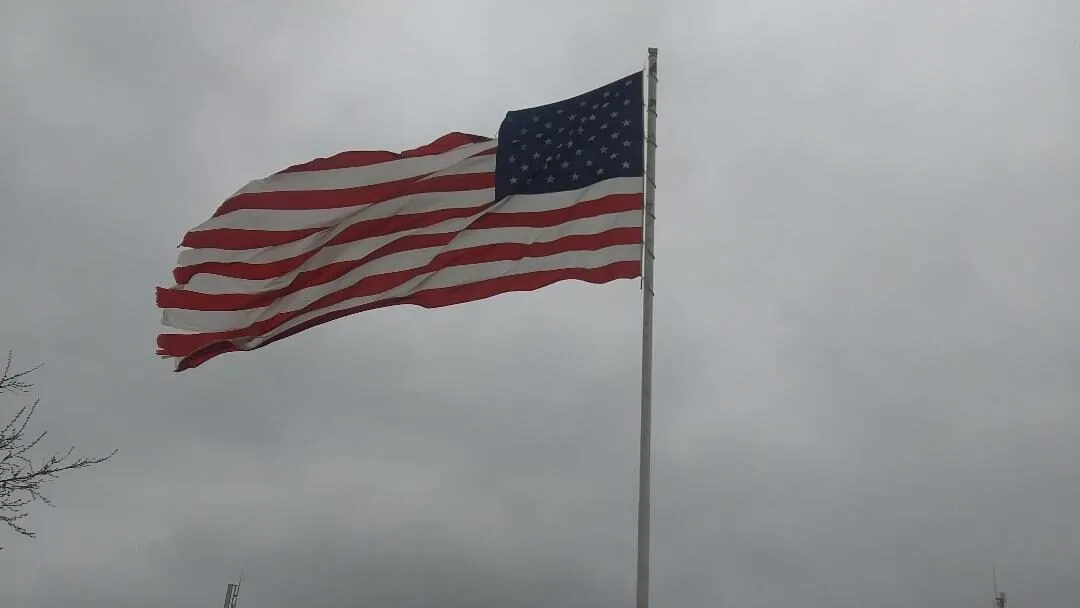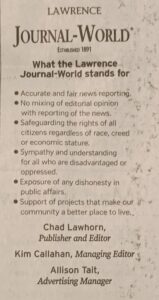The Pledge of Allegiance is creepy and problematic

Some people don’t like the Pledge of Allegiance because they don’t believe that there is “liberty and justice for all” in America. Some don’t like it because they don’t believe in God, and don’t like that it says, “under God.” Some might be completely for the pledge and think that it’s unpatriotic or downright un-American to be against the pledge. However, my reasons to be against it are not because of the above reasons most people give, and I would actually argue that my reasons to be against it are the most patriotic and pro-American reasons. I will say that, whatever your thoughts are after reading this article, the most important thing is that you, as an American, understand our history better and the reason why certain things, like the Pledge of Allegiance, exist in the first place.
History of the Pledge of Allegiance
The Pledge of Allegiance was written in 1892 by Francis Bellamy where it was then published in The Youth’s Companion, a children’s magazine. Bellamy, who was a socialist, had a goal in mind for this pledge and that was to have it be said by people as a collective worldwide. The pledge, as originally written, goes as follows:
“I pledge allegiance to my Flag and the Republic for which it stands, one nation, indivisible, with liberty and justice for all.”
This generic pledge was meant to start a globalist pledge to the government, while inducing a collectivist thought (as everyone would say it in unison).
In 1923, the words, “to the flag of the United States of America,” were added to the pledge. This made the pledge less of a globalist thing, yet it was still pledging allegiance to the American government.
Not only was the American Pledge of Allegiance started by an American socialist, it was also influenced by Nazi Germany during World War II. In the original pledge, as Bellamy had explained in The Youth’s Companion,
“At a signal from the Principal the pupils, in ordered ranks, hands to the side, face the Flag. Another signal is given; every pupil gives the flag the military salute — right hand lifted, palm downward, to a line with the forehead and close to it. Standing thus, all repeat together, slowly, “I pledge allegiance to my Flag and the Republic for which it stands; one Nation indivisible, with Liberty and Justice for all.” At the words, “to my Flag,” the right hand is extended gracefully, palm upward, toward the Flag, and remains in this gesture till the end of the affirmation; whereupon all hands immediately drop to the side.”
The extension of the arm to the flag was so eerily similar to the Nazi salute that it was dropped from the pledge which is the whole reason we just put our hand over our heart today.
However, it doesn’t end here as Russian communists also played a role in shaping our current pledge. During Flag Day in 1954, President Dwight D. Eisenhower added the words “under God” to the Pledge. These two words were added in response to the Soviet Union and thanks to President Eisenhower’s pastor, Reverend George M. Docherty, who talked about the pledge in one sermon, saying, “There is something missing… Indeed, apart from the mention of the phrase, ‘the United States of America,’ it could be the pledge of any republic. In fact, I could hear little Muscovites repeat a similar pledge to their hammer-and-sickle flag in Moscow.”
Bellamy’s daughter objected to the words, “under God” being put into the pledge, though I have found no specific reasons as to why.
A pledge to your government that was written by a socialist with ideas of globalism and molded overtime by other foreign socialist and communist groups does not sound American to me, and for this reason, I do not like the Pledge of Allegiance. While this should be enough to justify my disdain for the pledge, I can actually take things a step further. After all, the Pledge of Allegiance isn’t just un-American….
The Pledge of Allegiance is Unconstitutional
Bellamy wrote the words “One nation, indivisible” which may seem harmless, but these words actually undermine the Declaration of Independence and the Constitution. The U.S. has what is called a “federal government” and it governs the federation, not the nation. It was feared that the U.S. constitution would create a national government instead of a federal one. To address this issue, the Federalist Papers and the Bill of Rights were written. While specific powers were delegated to the federal government, the rest were reserved to the states or the people. This was to ensure there wasn’t “one nation” but rather a federation of self-governing republics.
The word “indivisible,” meaning incapable to divide. However, the Declaration says the following:
That whenever any Form of Government becomes destructive of these ends, it is the Right of the People to alter or to abolish it, and to institute new Government, laying its foundation on such principles and organizing its powers in such form, as to them shall seem most likely to effect their Safety and Happiness.
This would be impossible to do if the U.S. was “one nation, indivisible.” This is the ideology of those that were big government Federalists like Alexander Hamilton who, during the constitutional convention of 1787, had his proposals to turn the United States into “one nation, indivisible” rejected.
Conclusion
Some people think that because I don’t like the pledge, I don’t like the flag, but the reality is I love the American flag. It’s beautiful and iconic. When asked about what we should say instead of the pledge, I always like to point out that the Star-Spangled Banner by Francis Scott Key is uniquely American and should always be upheld. Key wrote the poem during the War of 1812 in 1814 after being relieved to see that the American flag was still waving over a still standing Fort McHenry. Key had been held hostage on a British warship, having to watch the British bomb the fort for 25 hours. The story of the Star-Spangled Banner brings tears to my eyes every time as it is just such a powerful and unapologetically American story worth preserving for all time. The Pledge of Allegiance, however, is worth remembering as nothing more than socialist propaganda that undermines the Constitution in favor of big government.
- Tags: america, pledge of allegiance, socialism
Recent Articles
Subscribe to Our Newsletter
Subscribe to our weekly newsletter to stay up to date on Kansas news!






